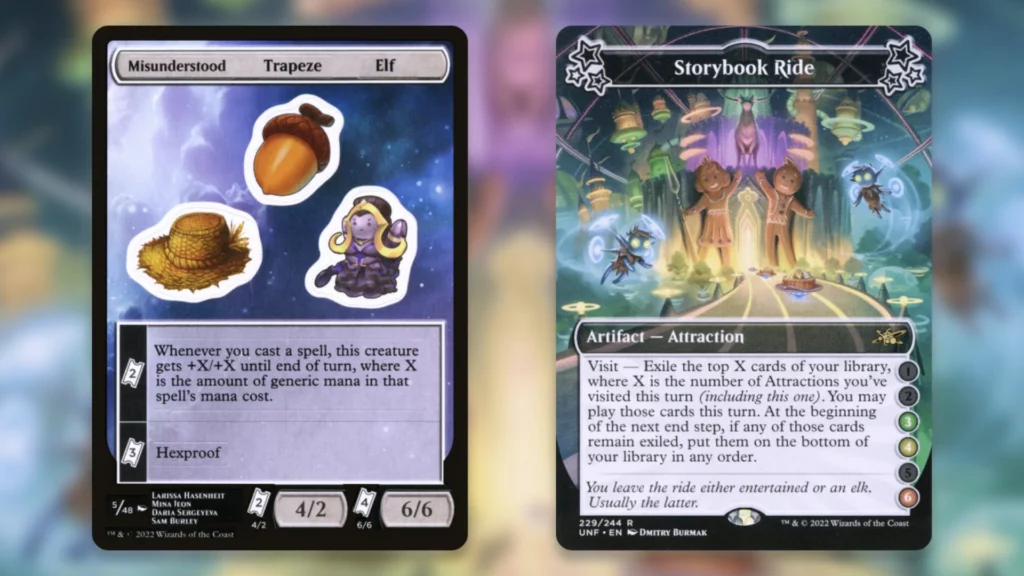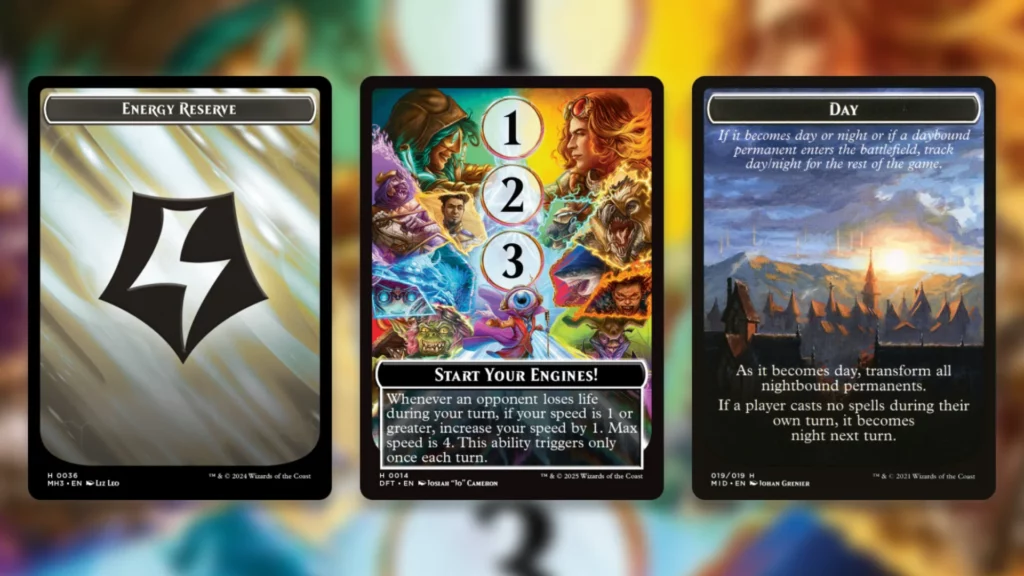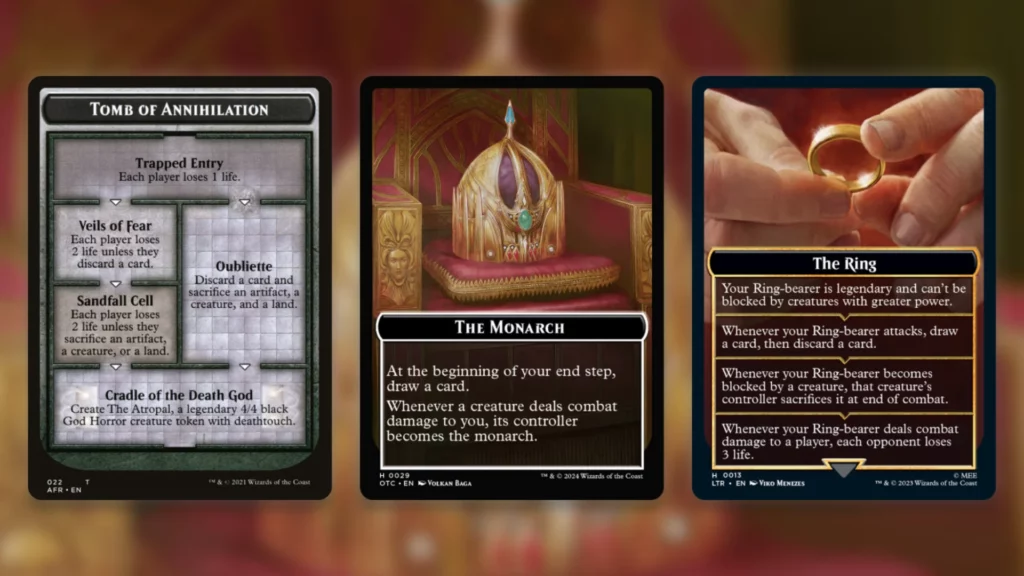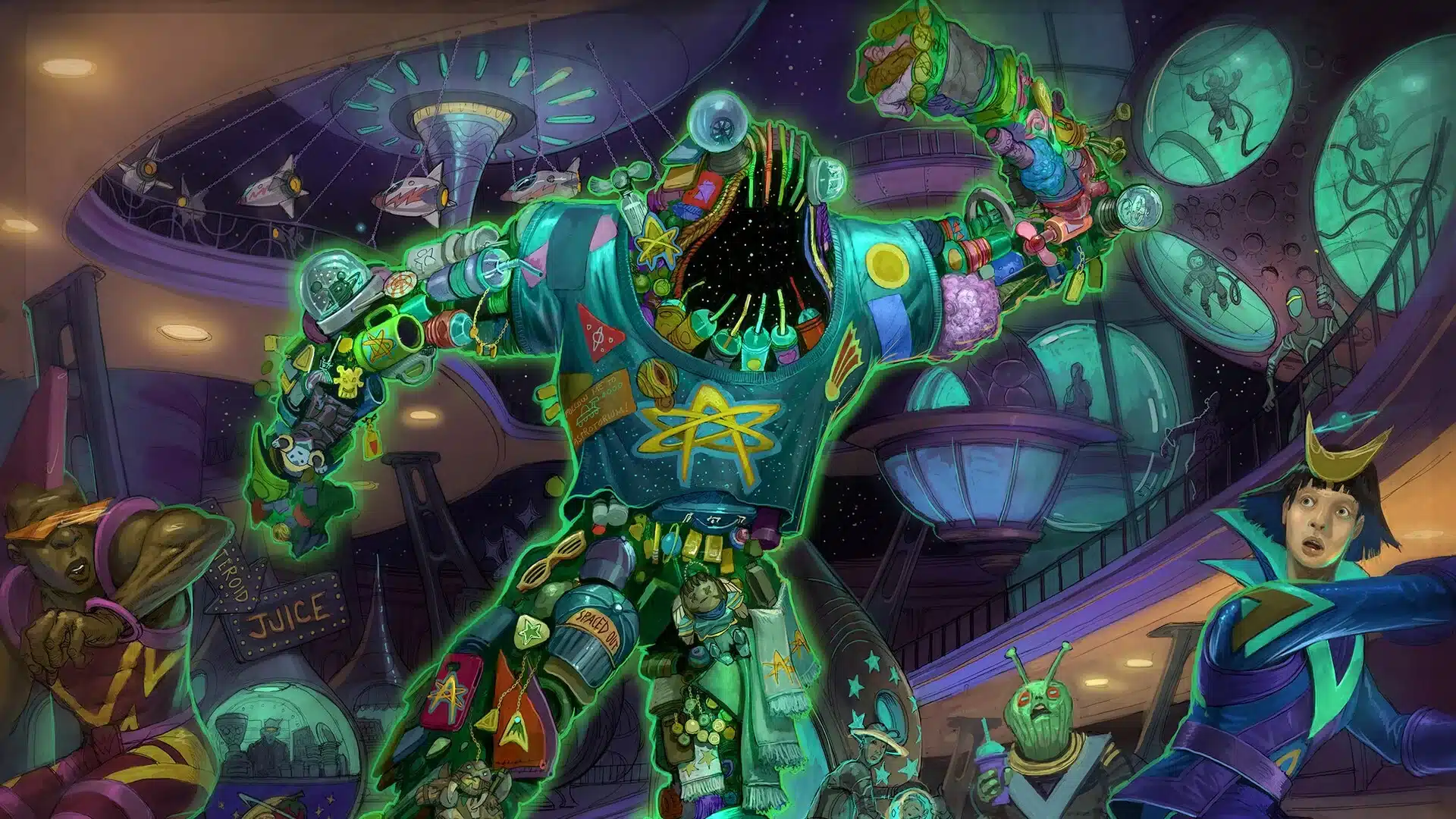In recent years, we’ve seen Magic: The Gathering expand a lot beyond its established boundaries. With mechanics like Monarch, Day/Night, and Dungeons, the game has gradually accumulated what amounts to a series of add-ons. These external game mechanics, as we’ll be calling them here, are a double-edged sword for MTG. On one hand, they add extra layers of complexity and depth to the game. On the other hand, they add a lot of baggage, both physical and mental, to games in which they play a part.
Whether you love these mechanics or loathe them, it’s hard to deny that they’re a significant addition to the game. An addition which, according to Mark Rosewater, Wizards isn’t particularly interested in pursuing further. In a recent Blogatog post, the Head Designer made it clear that external mechanics are something we’ll be seeing less of in the game going forward. Depending on how you personally enjoy playing Magic, this may be a bitter pill to swallow.
No More External Game Mechanics In MTG?

“Cappuccinojuice: Hi Mark! I personally love the extra mechanics that require some tracking, like stickers, attractions, dungeons and energy. Do you think we’ll ever have a product (commander or a full set) that uses two at once like Unfinity did? I’d love to have a draft environment like that again, but I understand its harder to keep track of at the table.
Mark Rosewater: We’re actually moving in the opposite direction, trying to lessen how much external things you have to pay attention to, so I don’t expect it anytime soon.”
Via Blogatog
While this change in position on external game mechanics in MTG seems sudden, it’s important to keep in mind the context. If you roll the clock back 10 years, barely anything like this existed. Conspiracy’s Monarch mechanic was our first taste of the idea back in 2014, but other than that, Magic: The Gathering consisted solely of the cards in each player’s deck.
Fast forward to today, and the number of external mechanics has increased massively. You’ve got Day/Night, The City’s Blessing, Dungeons, The Ring Tempts You, Max Speed; all new mechanics, all of which require additional tracking on top of the normal game. Heck, even Kaladesh’s Energy asks for something similar. As Cappuccinojuice notes above, this idea really came to a head in Unfinity, where both Stickers and Attractions appeared side by side.
External mechanics, by their very nature, are a compound issue. Just one is fine and doesn’t add much extra hassle to the game at all. Once you have five or more in the mix, however, things can get a little hard to track. This is especially true in Commander, which is where the majority of mechanics like this end up doing their best work. Rosewater’s point about reducing the number of extra things players have to pay attention to makes perfect sense in this context.
This is doubly true, given the nature of the current player base and Wizards’ plans. We’re fresh off the one-two punch of Bloomburrow/Foundations last year, specifically engineered to get new players into the game. Reducing complexity helps advance that goal. Additionally, many players are unimpressed with how Magic has deviated from its core identity in recent years. External mechanics, while not a main cause in this regard, certainly contribute.
For The Best?

With all of this in mind, it’s not surprising that many players seem to be in favor of this change. While external MTG game mechanics have their fans, like Cappuccinojuice above, the majority seem to prefer things more streamlined.
“Thank you Mark. I’m definitely of the camp who enjoys the game more when there’s less things I need to track”
jenny-in-a-jar, via Blogatog
“I love that magic is dropping all the extra baggage. Day/night, dungeons, tempt, speed, emblems, monarch, energy and all that stuff mostly bloat the game.”
theroodinverse, via Blogatog
The idea of Magic: The Gathering becoming bloated through these external mechanics is an apt one. While Magic is not generally thought of as a board game, outside of certain Commander circles, it does have many of the trappings of one. A common problem with board games is that they can become overly complex over time through the addition of multiple expansions that each shake things up a little bit.
External mechanics are to Magic what expansions are to board games. Each one adds more elements for players to keep track of, which in turn leads to slower, more complex games. Day/Night and Initiative, in particular, are widely despised by players because of the effect they have on Commander. Four-player board states can get complicated enough without having to keep track of the number of spells cast and other elements on top.
“It’s interesting, I’d agree with you on every one of those except monarch and emblems. Remembering that something does one thing is easy enough and those two are worth it, when we get into things like tempt and dungeons eek, no thanks. And don’t even get me started on day/night.”
galvanicakashic, via Blogatog
It’s worth noting that external mechanics have trended into the ‘more complex’ space over time. Max Speed wasn’t too bad, but The Ring Tempts You and Dungeons have a ton of moving parts to them. The best middle ground looks to be somewhere back around Conspiracy, which may well be where we regress to with these new changes coming down the pipeline.
Unnecessary Baggage

Though these changes may disappoint some, I expect they’ll be a net positive for Magic: The Gathering as a whole. There’s plenty of evidence from the last decade of MTG discourse that supports the complete removal of external game mechanics, in fact.
For example, CryptographerNo3749 started a thread on r/MagicTCG last week to discuss cards players don’t include in their Commander decks because of their high complexity. As you might expect, cards using external mechanics popped up regularly in the ensuing conversation.
“Any of the Dungeon cards or The Ring Tempts you I tend to shy away from. Too much tracking, especially if someone else “Takes the initiative” and they are not ready to track the progress.”
Key-Librarian1775
Each external mechanic you include in your deck asks a little more of you in terms of physical supplies, which can become a problem at a certain point. Some of these mechanics, like Initiative, also get other players involved, who almost certainly won’t have done the same preparation themselves. The result can be a confusing mess, especially in a random pod at your LGS.
Of course, some external mechanics are just too much of a hassle to deal with, such as Day/Night. Even ignoring the wider problem that not all Werewolves have this mechanic, it’s a nightmare in physical complexity. Whenever the time of day changes, Werewolf players have to flip their board, which takes an age when sleeved. It’s no wonder that Werewolves are surprisingly unpopular in Commander because of this.
“I had a Tovolar werewolf kindred deck that was absolutely wild. But because I play with sleeves, every transformation took forever. Especially with board wide transformations. It just made me feel self conscious for taking all the time in the world to flip creatures over to figure out board states.”
naruhina00
Ultimately, while there are upsides to external mechanics, scaling them back from here on out is likely a good move. If there’s one thing Magic isn’t lacking in it’s complexity, after all.

